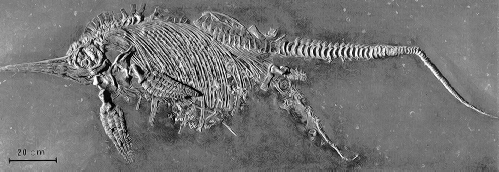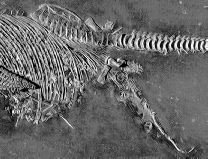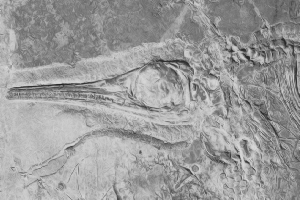
| What makes the first two images so special is that this ichthyosaur, Stnepterygius quadriscissus , is that there is three embyros inside the body and another in the birthing process (modified from Briggs, 1990).
|

|
This is a close up of the above photo showing the birth of a young ichthyosaur (modified from Briggs, 1990).
|

| This young ichthyosaur, Macropterugius pasthumus , Wagner, was found in the Solnhofen Limestone and its eye socket is 83 mm in diametre (modified from Barthel et. al., 1990).
|
| Click on the image to return to the Fossils Page. |
|





